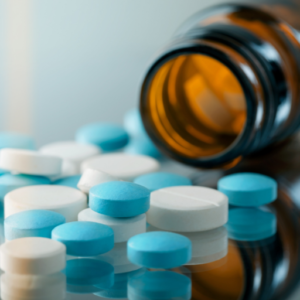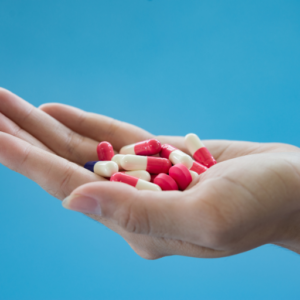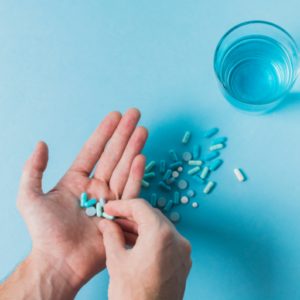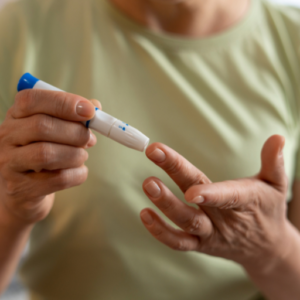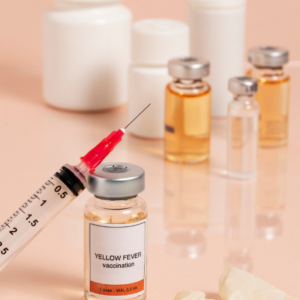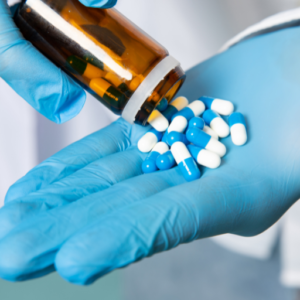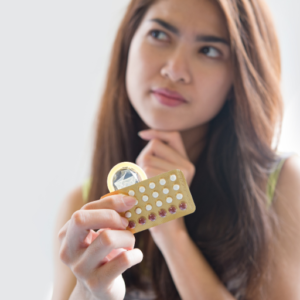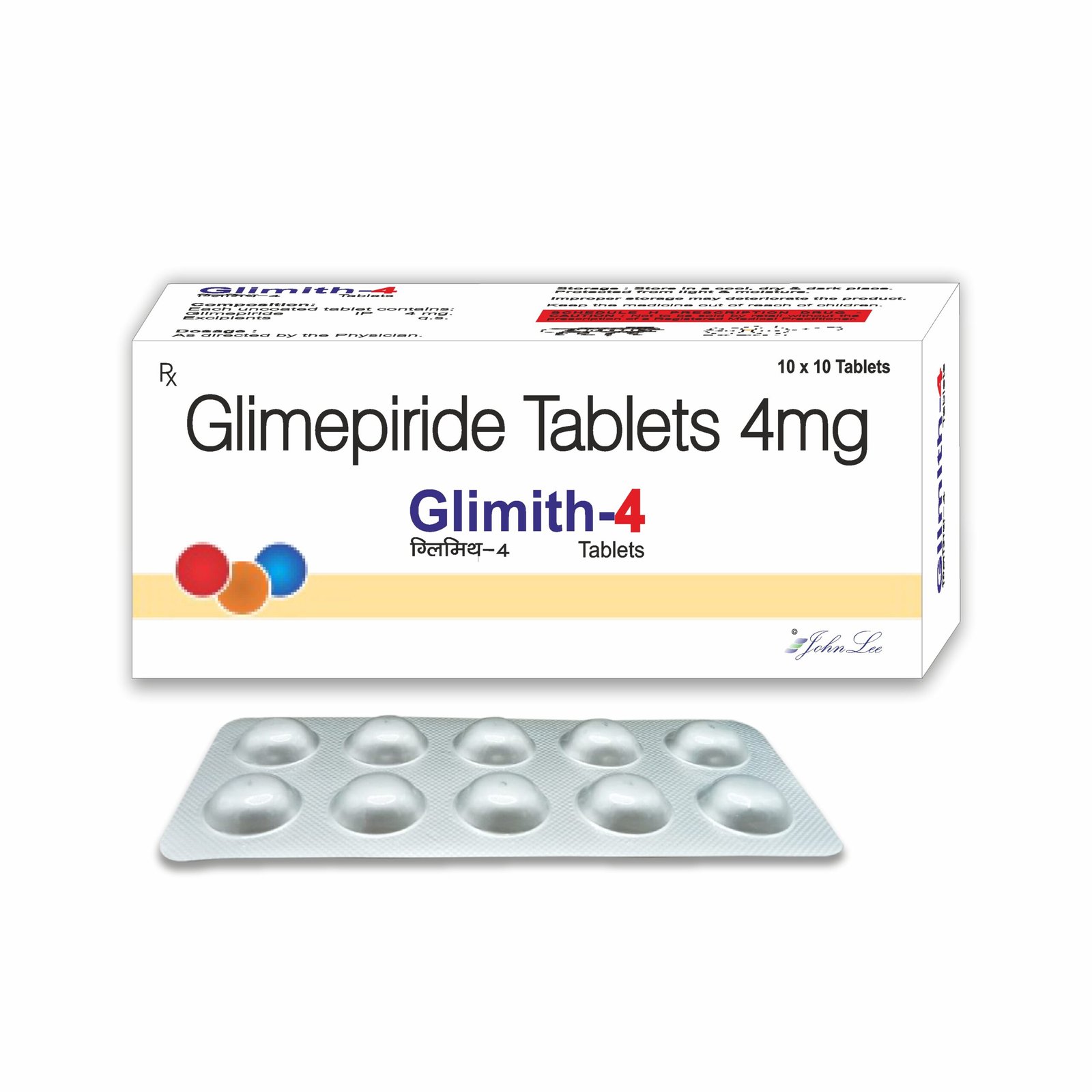Glimith-4mg
| Package | Per tablet | Savings | Price |
|---|---|---|---|
| 180 tablets | $0.23 | $13 | $54 $41 |
| 150 tablets | $0.23 | $10 | $45 $35 |
| 120 tablets | $0.24 | $7 | $36 $29 |
| 90 tablets | $0.26 | $4 | $27 $23 |
| 60 tablets | $0.27 | $2 | $18 $16 |
| 30 tablets | $0.30 | – | $9 |
What is this medicine?
GLIMITH‑4 Tablet is a combination antidiabetic medication used to manage type 2 diabetes mellitus. It combines four active ingredients:
-
Glimepiride – a sulfonylurea that increases insulin release from the pancreas
-
Metformin – a biguanide that reduces liver glucose production and improves insulin sensitivity
-
Pioglitazone – a thiazolidinedione that enhances insulin action in muscle and fat
-
Dapagliflozin – a sodium-glucose co-transporter 2 (SGLT2) inhibitor that increases glucose excretion in urine
This therapy helps lower blood sugar when diet, exercise, and simpler medications aren’t enough.
What should I tell my health care provider before I take this medicine?
They need to know if you have any of these conditions:
-
Kidney or liver impairment
-
Heart problems, including heart failure
-
Bladder cancer (current or previous)
-
Risk factors for lactic acidosis
-
History of recurrent urinary tract or genital infections
-
Vision disorders from diabetes (e.g. retinopathy)
-
Underactive adrenal or pituitary glands
-
Allergies to sulfonylureas, pioglitazone, metformin, or SGLT2 inhibitors
-
Pregnant or planning pregnancy
-
Breast-feeding
How should I use this medicine?
Take by mouth, usually once daily with a meal, or as your doctor prescribes. Taking it with food helps reduce stomach upset.
-
Take doses at consistent times every day.
-
Do not increase frequency or stop without doctor advice.
Overdosage: If you suspect overdose, especially with symptoms like shakiness, confusion, excessive urination, or dehydration, contact a poison control center or emergency room immediately.
What if I miss a dose?
If you miss a dose, take it as soon as possible. If it’s nearly time for your next dose, skip the missed one. Never double up.
What may interact with this medicine?
-
Alcohol – increases risk of low blood sugar or lactic acidosis
-
Diuretics – risk dehydration
-
NSAIDs, steroids, thyroid meds – affect blood sugar control
-
Medications for blood pressure or heart disease
-
Other antidiabetic drugs (insulin, sulfonylureas)
-
Medications affecting kidney function
Always inform your provider about all products you’re using: prescriptions, OTC drugs, supplements, herbs. Also tell them if you smoke, drink alcohol, or use recreational drugs.
What should I watch for while using this medicine?
-
Monitor blood glucose regularly.
-
Recognize signs of low blood sugar: sweating, shaking, hunger, dizziness, confusion – carry glucose.
-
Stay alert for urinary or genital infections (pain, frequent urination, unusual discharge).
-
Watch for signs of dehydration: dizziness, dry mouth, thirst.
-
Report symptoms like shortness of breath, leg swelling, sudden weight gain (heart failure risk).
-
Be cautious during surgery or imaging with contrast dye—tell providers you’re on this medicine.
-
Avoid alcohol and stay well-hydrated.
What side effects may I notice from this medicine?
Report immediately to your doctor if you experience:
-
Allergic reactions: rash, hives, swelling, difficulty breathing
-
Signs of serious low blood sugar: confusion, fainting, seizures
-
Signs of infection: fever, painful urination
-
Dehydration symptoms: excessive thirst or dizziness
-
Rapid breathing, stomach pain, unusual tiredness (lactic acidosis)
-
Heart failure signs: swelling, breathlessness
-
Jaundice: yellowing eyes/skin
-
Visual changes
Side effects usually mild (notify if persistent):
-
Nausea, diarrhea
-
Headache, dizziness
-
Mild weight gain
-
Increased urination or thirst
-
Gas, indigestion
This is not a complete list—contact your doctor for any other symptoms.
Where should I keep my medicine?
-
Store at room temperature (20–25 °C / 68–77 °F).
-
Keep dry and protected from light and moisture.
-
Securely store away from children.
-
Do not use past the expiration date.
-
Dispose of unused tablets properly via a pharmacy or according to local guidelines.




